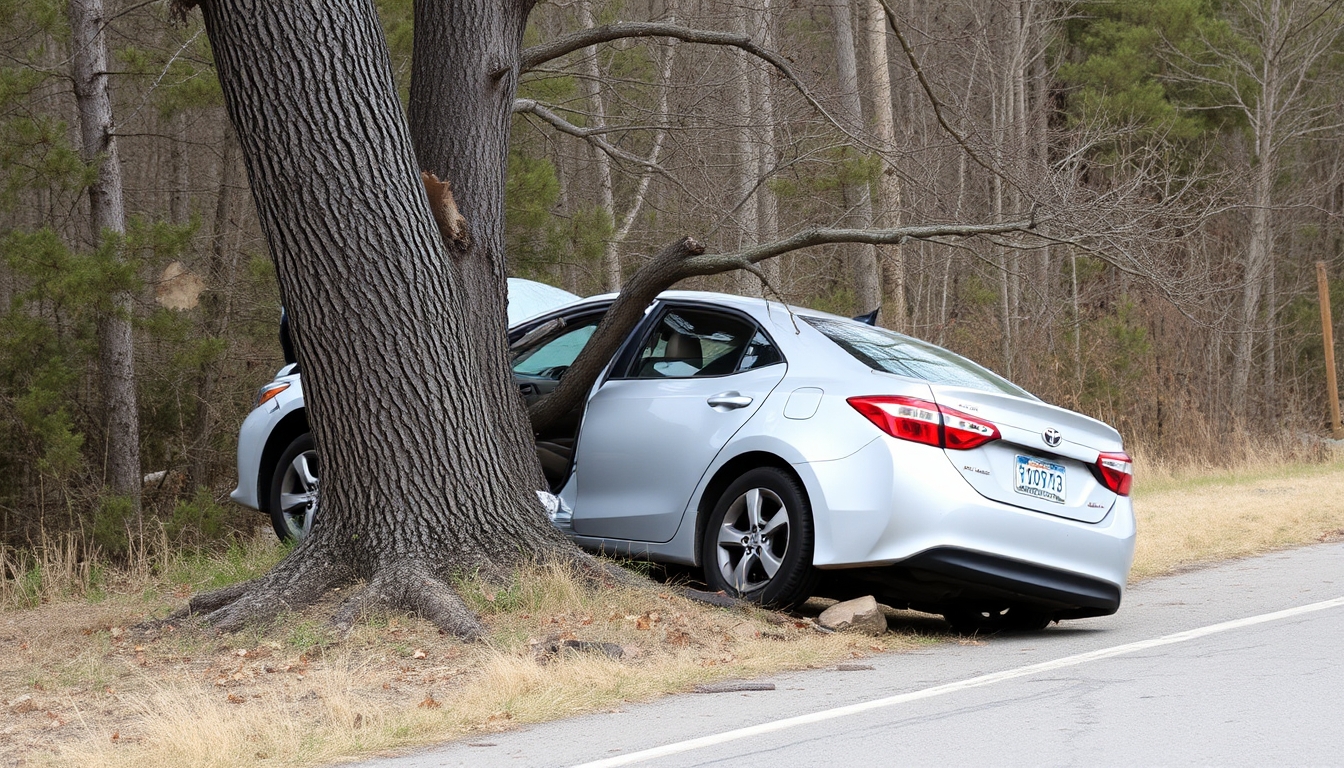When it comes to car insurance, navigating the myriad options can feel a bit like trying to untangle a ball of yarn. There are numerous types of coverage available, each designed to protect you in various situations. But what do all these terms mean? How can you determine what’s best for your needs? This comprehensive guide aims to clarify these questions and help you make informed choices regarding car insurance.
Table of Contents
Introduction Understanding the Different Types of Car Insurance Coverage Available- 2.1 What Is Car Insurance? 2.2 Why Do You Need Car Insurance?
- 3.1 What Is Liability Coverage? 3.2 Types of Liability Coverage
- 4.1 What Is Collision Coverage? 4.2 When Is Collision Coverage Useful?
- 5.1 What Is Comprehensive Coverage? 5.2 Understanding Exclusions in Comprehensive Policies
- 6.1 What Does PIP Cover? 6.2 The Importance of PIP in Accidents
- 7.1 What Are Uninsured and Underinsured Motorist Coverages? 7.2 Why These Coverages Matter
- 8.1 How Does Medical Payments Coverage Work? 8.2 Medical Payments vs PIP: What’s the Difference?
- 9.1 Understanding Gap Insurance 9.2 Who Should Consider Gap Insurance?
- 10.1 What Is Rental Reimbursement Coverage? 10.2 Benefits of Rental Reimbursement
- 11.1 What Does Roadside Assistance Cover? 11.2 The Value of Having Roadside Assistance
- 12.1 Why Might You Need Custom Parts and Equipment Coverage? 12.2 Examples of Custom Modifications Covered
Introduction
Car insurance plays a vital role in safeguarding not only your vehicle but also your financial future in times of crisis or accidents on the roadways we traverse daily.
In this article, we will dive deep into “Understanding the Different Types of Car Insurance Coverage Available.” By breaking down complex concepts into digestible bits, we aim to equip you with the knowledge needed to select the right coverage for your situation.
Understanding the Different Types of Car Insurance Coverage Available
What Is Car Insurance?
Car insurance is a contract between you and an insurer that provides financial protection against physical damage or bodily injury resulting from traffic collisions, theft, or other incidents involving your vehicle.
Why Do You Need Car Insurance?
In most places, having at least some form of car insurance is mandatory by law—primarily liability coverage—which protects others if you're at fault in an accident.
However, beyond fulfilling legal obligations, car insurance serves as a safety net for unforeseen circumstances that could leave you financially vulnerable.
Liability Coverage
What Is Liability Coverage?
Liability coverage is fundamentally about protecting others when you're at fault in an accident—it covers their medical expenses and property damage.
Types of Liability Coverage
- Bodily Injury Liability: This helps pay for injuries you cause to others. Property Damage Liability: This assists with costs related to damage you cause to another person's property.
Both types typically have limits based on state requirements or personal policy choices.
Collision Coverage
What Is Collision Coverage?
Simply put, collision coverage pays for damages to your vehicle after a crash—regardless of who was at fault.
When Is Collision Coverage Useful?
If you're financing or leasing your birth injury lawyer near me vehicle, most lenders will require you to maintain collision coverage until it's paid off entirely.
Comprehensive Coverage
What Is Comprehensive Coverage?
Comprehensive coverage protects against non-collision-related incidents such as theft, vandalism, natural disasters like floods or hailstorms, and even animal strikes.
Understanding Exclusions in Comprehensive Policies
While comprehensive policies cover many events, there are notable exclusions—like mechanical failure or wear-and-tear—so it’s important to read the fine print before purchasing this type of coverage.
Personal Injury Protection (PIP)
What Does PIP Cover?
PIP covers medical expenses for you and your passengers following an accident—regardless of who is at fault—and can even cover lost wages due to injuries sustained during an accident.
The Importance of PIP in Accidents
In states with no-fault laws, having PIP is essential since it simplifies claims processes and ensures quicker access to funds needed for recovery after an incident.
Uninsured and Underinsured Motorist Coverage
What Are Uninsured and Underinsured Motorist Coverages?
These coverages protect you if you're involved in an accident where the other party has insufficient or no insurance at all to cover damages—a common issue on today’s roads!
Why These Coverages Matter
Having uninsured/underinsured motorist coverage ensures that you're not left paying out-of-pocket expenses when someone else causes damages but lacks adequate insurance protection themselves.
Medical Payments Coverage
How Does Medical Payments Coverage Work?
This type of insurance helps pay for medical expenses incurred by you or your passengers after an accident—regardless of fault—and often covers things like ambulance fees and hospital bills.
Medical Payments vs PIP: What’s the Difference?
While both cover medical expenses post-accident, PIP usually offers broader benefits including wage loss compensation and rehabilitation costs while medical payments may have more limited application focusing solely on immediate healthcare costs incurred due directly from an accident scenario without regard for any working income implications post-incident itself!
Gap Insurance
Understanding Gap Insurance
If your car's value depreciates faster than what you owe on it (common with new cars), gap insurance fills that gap by covering the difference between what your insurer pays out if it's totaled versus what remains unpaid on any loans taken out against said vehicle purchase price!
Who Should Consider Gap Insurance?
Anyone financing or leasing their vehicle should strongly consider adding gap insurance as part of their overall auto policy strategy; this way they won’t be burdened financially should something happen unexpectedly leading them into debt over owning something that no longer exists!
Rental Reimbursement Coverage
What Is Rental Reimbursement Coverage?
Rental reimbursement covers costs associated with renting a vehicle while yours undergoes repairs following covered incidents like accidents or thefts ensuring continuity during unfortunate events disrupting normal driving routines!
Benefits Of Rental Reimbursement
With rental reimbursement included within chosen policies drivers can avoid significant out-of-pocket expense arising unexpectedly while waiting on auto repair timelines providing peace-of-mind knowing they won’t face disruptions due solely from mishaps requiring attention beyond their control!
Roadside Assistance And TowingCoverage
What Does Roadside Assistance Cover?
Roadside assistance provides services like towing after breakdowns jump-starting batteries flat-tire changes lockout assistance fuel delivery among others helping restore mobility without additional worries looming overhead during unpleasant scenarios encountered upon travel routes undertaken each day!
The Value Of Having Roadside Assistance
Many people overlook this valuable component but those who’ve experienced being stranded far away from home appreciate having access readily available through established networks enabling quicker resolutions without incurring hefty charges just because they didn’t prepare beforehand adequately!
Custom Parts And EquipmentCoverage
Why Might You Need Custom Parts And EquipmentCoverage?
If you've modified your vehicle—whether adding new rims spoilers custom sound systems—you’ll want extra protection since standard policies might not cover these enhancements unless specifically noted beforehand allowing full enjoyment without fear losing investments made over time through modifications applied personally!
Examples Of Custom Modifications Covered
Custom parts could include anything from upgraded audio systems high-performance tires specialized paint jobs among others ensuring all invested resources remain safeguarded whenever possible throughout ownership periods endured!
Conclusion
Understanding car insurance options means being empowered when making critical decisions affecting personal finances ultimately ensuring peace-of-mind wherever journeys may lead moving forward! By thoroughly evaluating different types available drivers can customize protections aligning best suited preferences individual circumstances specific lifestyles encountered routinely navigating complexities present along paths traveled daily!
FAQs
Q: How do I determine how much car insurance I need?
A: Assess factors such as state requirements personal asset values driving habits alongside potential risks faced regularly then find policies meeting those needs accordingly!
Q: Can I switch my car insurance provider anytime?
A: Yes! Most providers allow policyholders flexibility switching whenever necessary provided proper notice given depending respective contracts signed initially!

Q: What factors affect my car insurance premium rates?


Q: Are there discounts available for safe driving records?
A: Absolutely! Many insurers offer discounts rewarding safe driving habits allowing responsible individuals savings accrued over time reflecting low-risk behavior observed throughout tenure held!
Q: Do I need full coverage if my car is older?
A: It depends; evaluate current market value versus premiums charged assessing whether maintaining comprehensive/collision makes sense financially before deciding which approach suits best moving forward appropriately!
Q: What's the difference between comprehensive and collision coverage again?
A: Collision covers damages resulting from traffic accidents while comprehensive protects against non-collision events like theft natural disasters ensuring totality discussed earlier remains intact understanding nuances differentiating both clearly still applies here too overall contextually speaking throughout entire piece crafted above!
And there you have it—a thorough exploration into “Understanding the Different Types of Car Insurance Coverage Available.” Whether you're a seasoned driver looking to reassess your options or a novice starting fresh on this journey through vehicular ownership navigating complexities found therein doesn’t have be daunting anymore armed knowledge gained today provided throughout carefully constructed analysis presented above cumulatively addressing concerns queried consistently seen among fellow motorists alike continually seeking clarity amidst chaos often experienced otherwise unwarrantedly along roadways traversed collectively together toward brighter futures envisioned ahead undoubtedly awaiting discovery ahead!